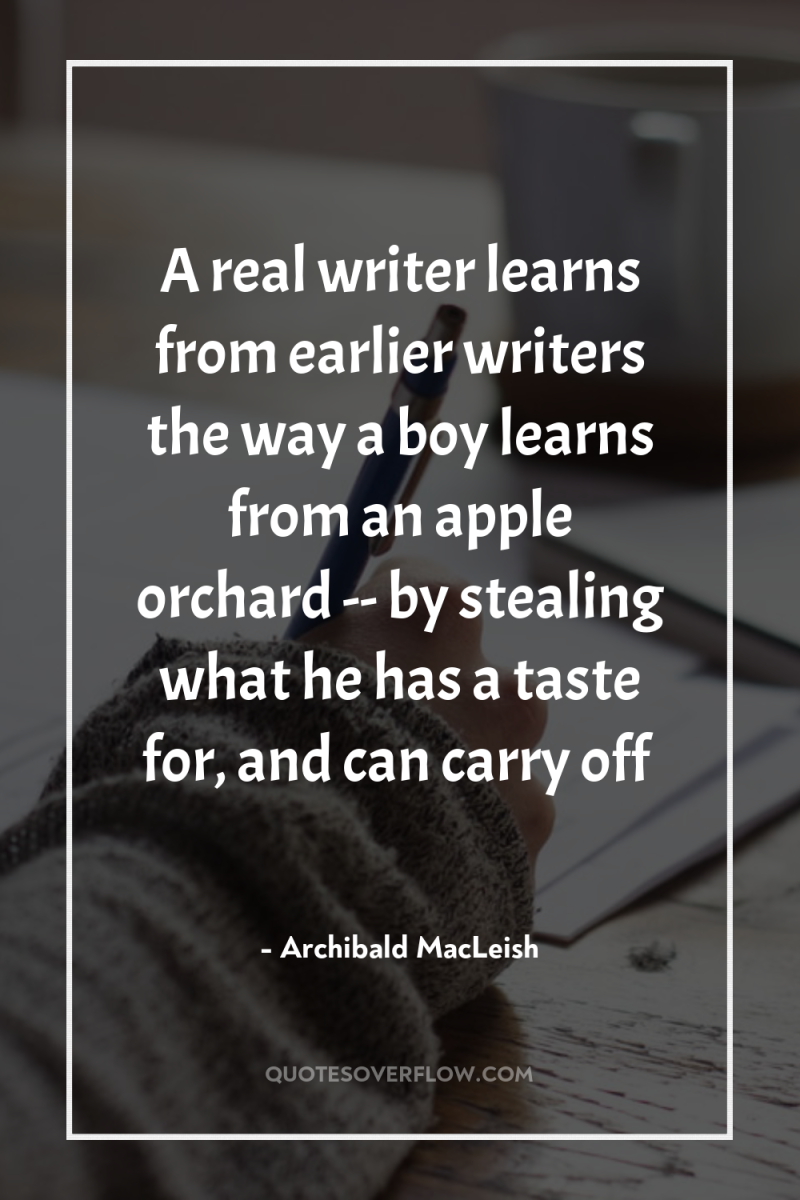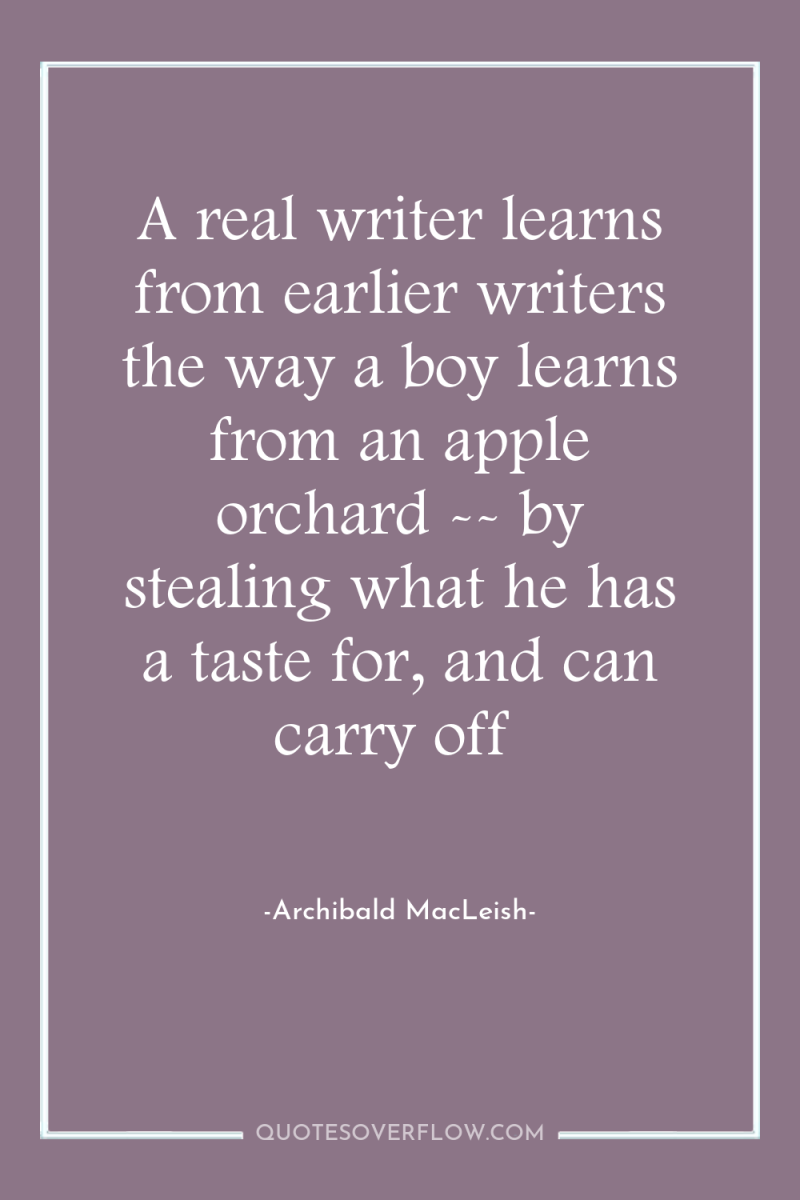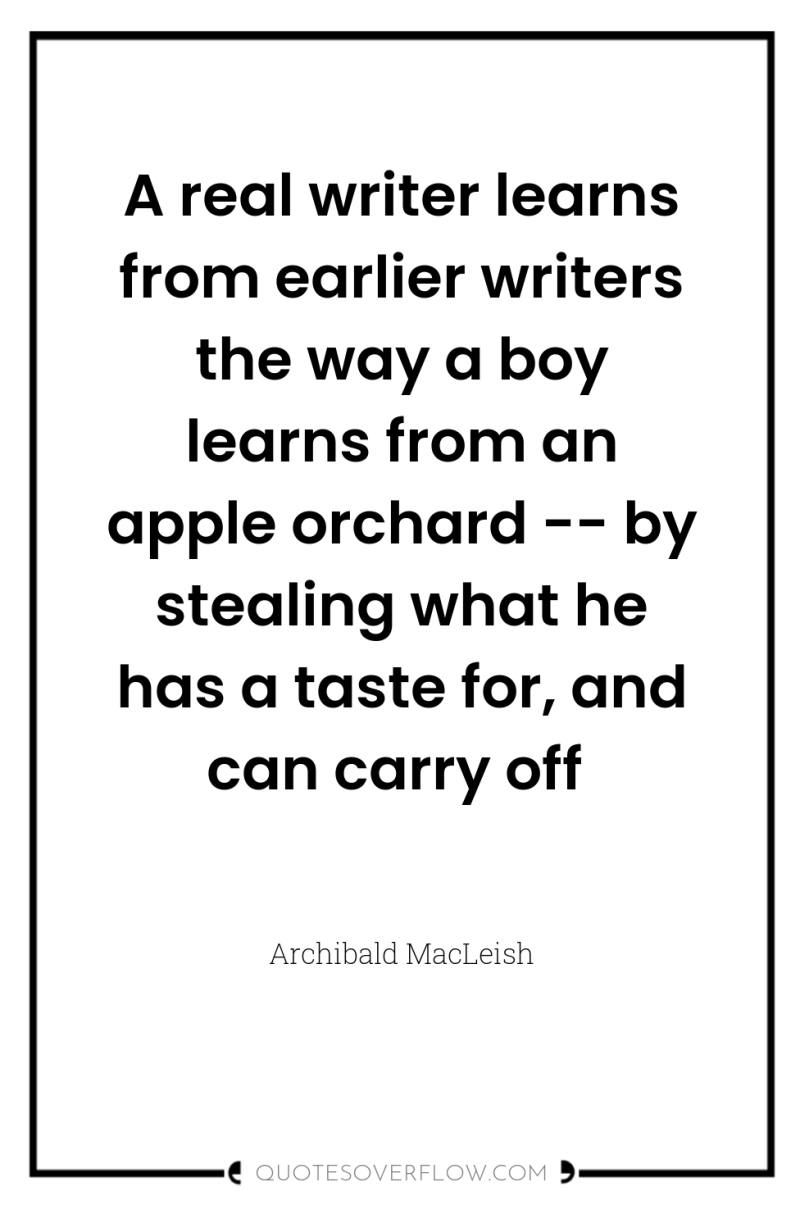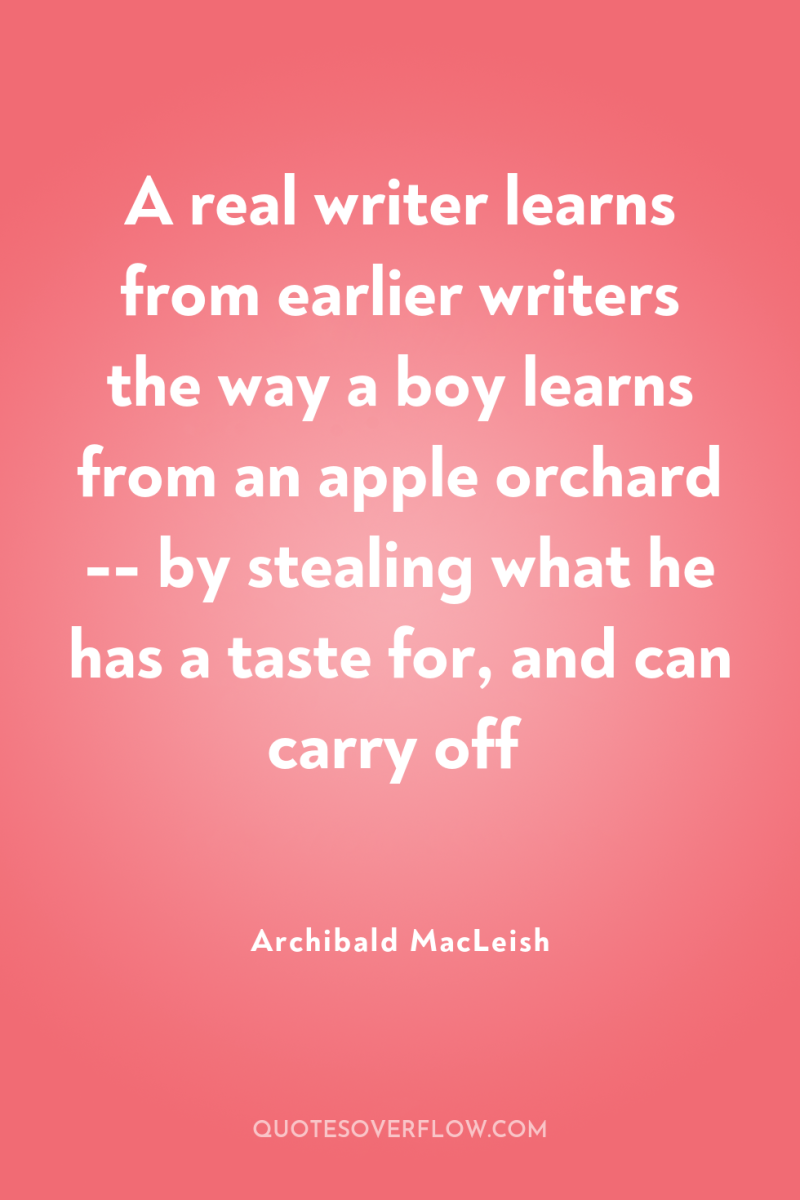Archibald MacLeishA real writer learns from earlier writers the way a boy learns from an apple orchard -- by stealing what he has a taste for, and can carry off




About This Quote
When we learn from other people’s writings or ideas, we can find something that we like and use in our own work. This is essentially what William Faulkner meant when he wrote: “A real writer learns from earlier writers the way a boy learns from an apple orchard -- by stealing what he has a taste for, and can carry off.” This is just one of the reasons why we should use other people’s materials when we write.
Some Similar Quotes
- And by the way, everything in life is writable about if you have the outgoing guts to do it, and the imagination to improvise. The worst enemy to creativity is self-doubt.
- You must stay drunk on writing so reality cannot destroy you.
- The road to hell is paved with adverbs.
- Fiction is the truth inside the lie.
- The most important things are the hardest to say. They are the things you get ashamed of, because words diminish them -- words shrink things that seemed limitless when they were in your head to no more than living size when they're brought out. But...
More Quotes By Archibald MacLeish
- Around, around the sun we go: The moon goes round the earth. We do not die of death: We die of vertigo.
- And here face down beneath the sun And here upon earth's noonward height To feel the always coming on The always rising of the night
- A poem should not mean But be.
- A real writer learns from earlier writers the way a boy learns from an apple orchard -- by stealing what he has a taste for, and can carry off
- What is more important to a library than anything else -- than everything else -- is the fact that it exists.", American Scholar; Washington, DC, June 5, 1972]